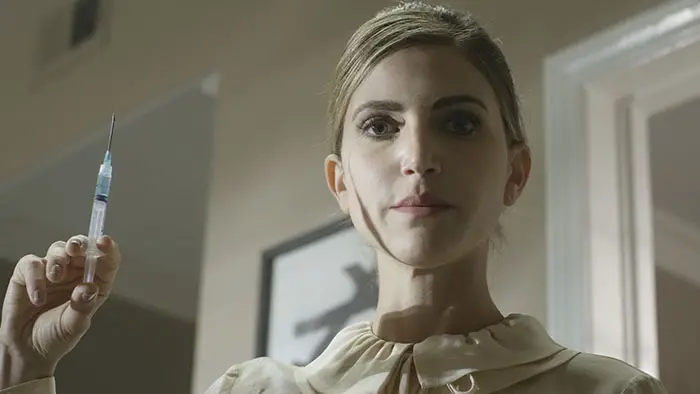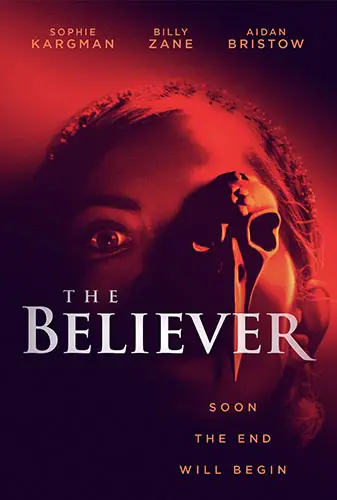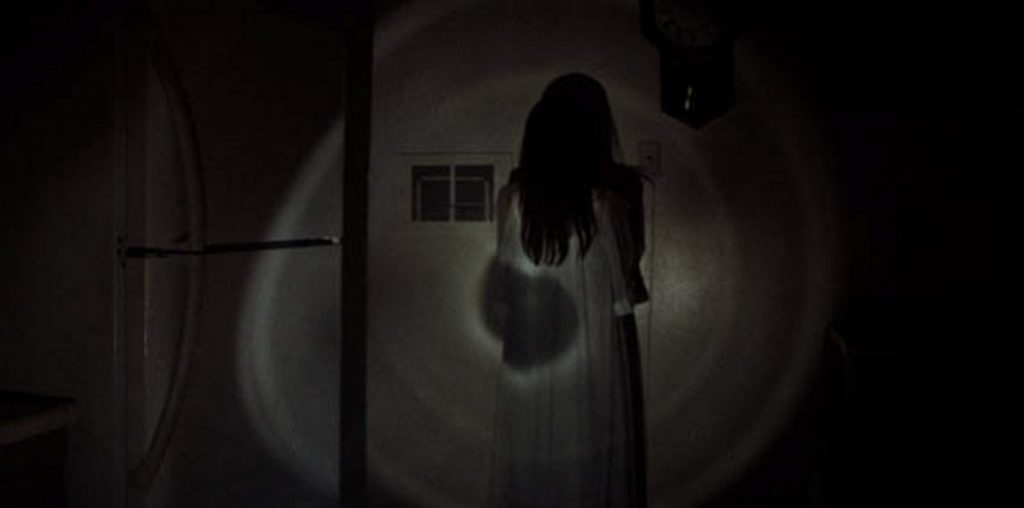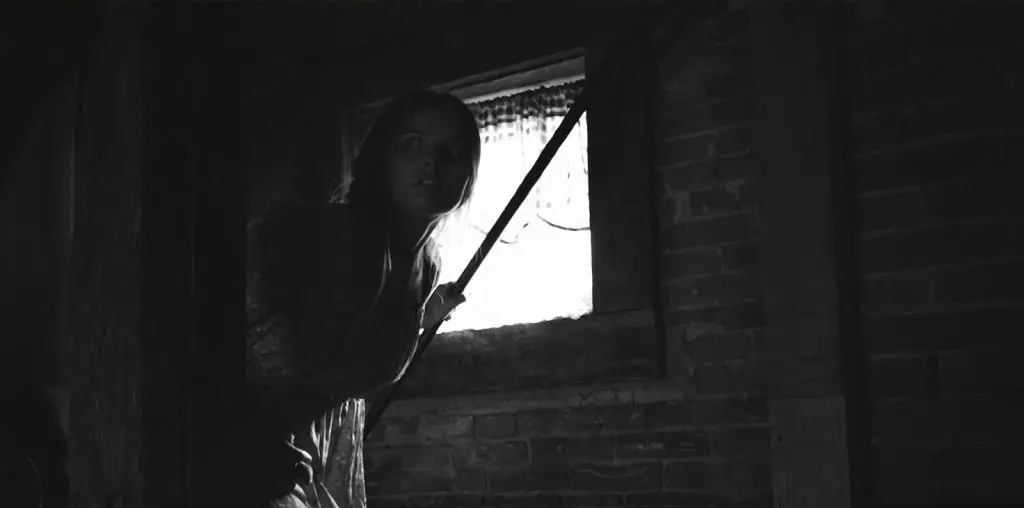
Filmmaker Shan Serafin displays guts and skill, if not originality, in his satanic psycho-horror film The Believer. A lot goes on in this unholy amalgamation (read: shameless rip-off) of classics like Rosemary’s Baby and Misery, but it fails to amount to much. The pretentious dialogue exchanges bog the proceedings down further. Were it not for its compelling lead and Serafin’s palpable, endearing conviction that he’s made a paradigm-changing masterpiece, there wouldn’t be much to recommend.
Lucas (Aidan Bristow), a struggling nuclear shielding physicist, believes that his wife, Violet (Sophie Kargman), has become deranged, if not possessed. He’s got his reasons, mind you. The chief one being that she violently terminated her pregnancy without so much as consulting him. Violet also does things like pierce her chest with broken shards of glass and chug bleach. But then again, according to his therapist, Dr. Benedict (Billy Zane), Lucas has trouble differentiating between reality and hallucinations. Is any of this real? Is Violet a conduit for the devil?

“Lucas…believes that his wife…has become deranged, if not possessed.”
“I don’t like how our political divide seems to bleed into our dinner table” is an example of the insufferable dialogue. “When you come at me with these allegories… I just want you to know that I’m out here, cringing at the disrespect that’s being shown to the institution of logic itself,” Lucas states, voicing my precise thoughts about the film. “You took logic out of the faith,” Violet says. “You took life out of our child,” he snaps back. I’d quote more, but literally, every line of dialogue is like this. The Believer is almost worth watching for its rapid-fire ludicrous back-and-forths alone.
Aidan Bristow, who uncannily resembles a younger Oscar Isaac, manages to deliver these lines with a modicum of conviction. He gets his moments to shine, particularly in a well-staged scene where Violet’s purported parents arrive at the most inopportune moment. Sophie Kargman fares worse, strumming the “blissfully mad” string with such vehemence, you’d wonder why or how Lucas ended up with her in the first place. Billy Zane doesn’t leave much of an impression as the ethically questionable shrink. (Fun fact: this is Zane’s second film titled The Believer. It was bound to happen in a career filled with hundreds of titles.)
The more effective moments in The Believer involve ambiguity, a sense of rising tension, and reality collapsing in on itself. Serafin reaches for the stars, loading his film with themes of the demons that lurk within us, one’s commitment to their partner, the failure of living up to one’s own expectations, and the difference between faith, spirituality, and belief. While admirable in its ambition, the end result just doesn’t quite gel. Cool poster, though.

"…Serafin displays guts and skill..."



I think the review, though astute in many of its observations, is negatively colored by preconceived biases regarding allegedly sacred tropes, and a fundamental misunderstanding of who and what the characters truly are. While the reviewer does properly recognize and acknowledge the content of the story, most other reviews I’ve read are shallow and insipid. Even Wikipedia (yes, not exactly a beacon of accuracy), completely bungles the film’s synopsis. The movie’s dialogue, which is also complained about by reviewers on Amazon where it is currently streaming, may *sound* pretentious to people who are used to more pedestrian exchanges, but I know people who speak this way. It comes from a position of excessive anticipation of possible assessments and responses, and ends up being the most efficient way to speak in a given situation. My own brother complains if I use a word he’s not familiar with, but does that mean I’m being more or less precise? Apparently one’s means of expression must be brought to the lowest common denominator for viewers to feel it is natural. Also, both characters do not speak the same way; Lucas is the brilliant nascent mind steeped in intellectualizing thoughts down to minutia, and Violet is more precise, as you would expect of someone who has lived as long as she has. As of this writing, I’ve seen the movie four times because I keep going back to it to connect all the dots. They’re all there, waiting for people to find them. Even the haunting song at the end of the movie (previewed in the opening credits, and Lucas’s first dialogue) is a part of the mystery, as it isn’t listed in the credits. The three songs listed are all played briefly during the bedroom dance scene. Apparently the mystery song is considered part of the score, as credit is given to Melissa R. Kaplan as “Score Vocalist.” This movie is a work of art with more to say than most people deem worthy of exploring.